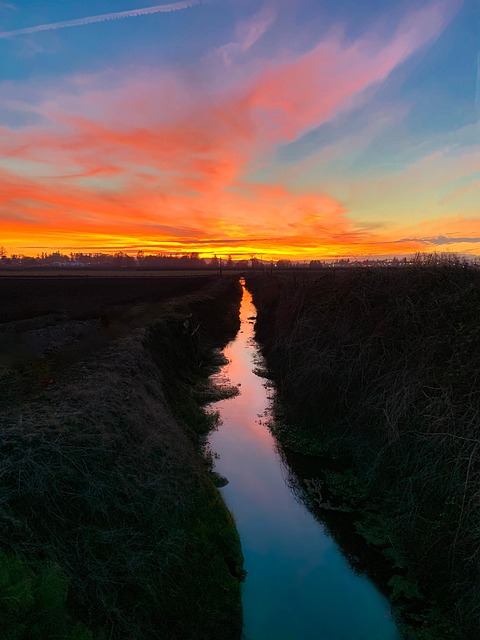Driving under the influence (DUI) in Oregon is a serious matter with harsh penalties. A robust DUI case defense involves understanding state laws, including BAC limits, field sobriety tests, and breathalyzer admissibility. Attorneys challenge evidence, questioning test administration, protocol adherence, and sample handling to protect clients' rights. Post-arrest decisions include accepting charges or fighting them, with plea bargains offering reductions; if going to trial, a strategic defense aims for dismissal or reduced penalties. SEO keywords: DUI case defense Oregon.
“Uncovering the intricacies of Oregon’s DUI laws and defense strategies is crucial for anyone facing these charges. In this comprehensive guide, we explore what constitutes a DUI in Oregon and delve into effective defense approaches. From common legal tactics to building a robust defense, we equip you with knowledge. Understanding potential outcomes and the next steps post-arrest is essential, as is recognizing the importance of an adept DUI case defense in Oregon. Stay informed and empowered throughout this process.”
- What Is a DUI in Oregon?
- Common Defense Strategies for Oregon DUI Cases
- Building a Strong Oregon DUI Defense
- Potential Outcomes and Next Steps After an Oregon DUI Arrest
What Is a DUI in Oregon?

In Oregon, driving under the influence (DUI) refers to operating a motor vehicle while impaired by alcohol or controlled substances. It’s a serious offense that carries significant penalties, including fines, license suspension, and even jail time. A DUI case defense in Oregon involves challenging the state’s evidence and procedures to protect an individual’s legal rights. The goal is to build a strong defense strategy that can lead to the dismissal or reduction of charges.
Understanding Oregon’s specific laws and regulations related to DUI is crucial for crafting an effective defense. This includes knowing the blood alcohol content (BAC) limits, the procedures for field sobriety tests, and the admissibility of evidence such as breathalyzer results. An experienced DUI attorney in Oregon will leverage these knowledge points to create a compelling case defense tailored to each client’s unique circumstances.
Common Defense Strategies for Oregon DUI Cases

In Oregon DUI cases, defendants often employ several common strategies to mount a robust defense. One prevalent approach is challenging the admissibility of breath or blood test results. Lawyers may argue that the tests were not conducted properly or that the equipment was not calibrated, leading to potential inaccuracies. Another tactic involves questioning the legality of the traffic stop itself, asserting that police lacked reasonable suspicion or probable cause to pull over the driver.
Additionally, attorneys may focus on disputing the field sobriety test (FST) outcomes, suggesting that officers used unreliable or subjective criteria for evaluation. They might also raise issues related to the handling of evidence, including improper storage or contamination of samples. Furthermore, some defendants choose to assert constitutional protections, such as challenging the search and seizure aspects of the arrest, or invoking their right against self-incrimination.
Building a Strong Oregon DUI Defense

Building a strong Oregon DUI defense requires a thorough understanding of state laws and procedures, as well as a strategic approach to challenge the prosecution’s case. One crucial aspect is to question the validity of field sobriety tests and breathalyzer readings. These tests are often the primary evidence against a defendant, so legal experts will scrutinize their administration to ensure they meet scientific standards and were conducted properly. For instance, errors in the interpretation of sobriety tests or technical glitches with breathalyzers can significantly weaken the DUI case defense in Oregon.
Additionally, attorneys may explore options such as challenging the stop itself if law enforcement officers failed to follow proper protocol, which could lead to the exclusion of evidence. They might also present alternative explanations for the defendant’s behavior and conduct a detailed analysis of blood or breath test results to identify any potential biases or inaccuracies. By employing these strategies, legal professionals aim to protect their client’s rights and build a robust defense in a DUI case in Oregon.
Potential Outcomes and Next Steps After an Oregon DUI Arrest

After an Oregon DUI arrest, individuals often face a range of potential outcomes and must navigate crucial next steps. The first decision is whether to accept or fight the charges. If a plea bargain is offered, understanding the terms and consequences is essential. Plea agreements can vary widely, from reduced charges to alternative sentencing options like diversion programs. A skilled Oregon DUI case defense attorney can help negotiate these deals, aiming for the best possible outcome based on the specific DUI case.
If an individual chooses to go to trial, their next step involves preparing a robust defense strategy. This may include challenging the admissibility of evidence, questioning witness testimonies, and raising legal arguments that could lead to dismissal or acquittal. The goal is to present a compelling case that protects the defendant’s rights and minimizes the potential penalties, which can include fines, license suspension, jail time, and installation of an ignition interlock device.






